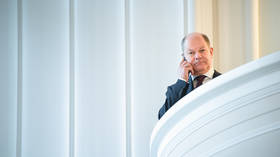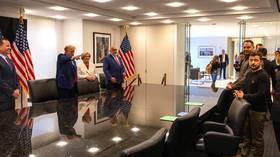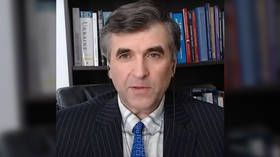Nip, tuck & selfie: Social media addiction spurs boom in plastic surgery
Social media users are turned to a more radical way than Photoshop to create an ideal selfie: plastic surgery. Worried about noses being “too big” or eyes “too droopy,” they are boosting business by up to 25 percent, a New York plastic surgeon says.
“They show me their picture and they say, ‘Oh, my nose is too big. My eyes are droopy. My mouth is crooked, my teeth are messed up. My face is wrong,” Sam Rizk, a plastic and reconstructive surgeon from New York, told RT.
Rizk, who specializes in rhinoplasty, says that there has been a 25 percent increase over the past two years among those who see the flaws in the look which they want to fix with the scalpel.
According to Rizk, even though selfies are creating a boom for his business, he refuses to operate on about 20 percent of patients hung up on distorted images of themselves.
"Selfies are taken at such short distance with a flat camera so it does distort the most prominent feature… the nose," he says.
An annual survey by the American Academy of Facial Plastic and Reconstructive Surgery (AAFPRS) says that every third plastic surgeon saw a rise in request for their business as patients have more and more obsessed with how they look on social media.
"Social platforms like Instagram, Snapchat and the iPhone app Selfie.im, which are solely image-based, force patients to hold a microscope up to their own image and often look at it with a more self-critical eye than ever before," AAFPRS president Edward Farrior said. "Our patients want to put their best face forward."
For more on selfies addiction, watch Marina Portnaya's report for RT.














